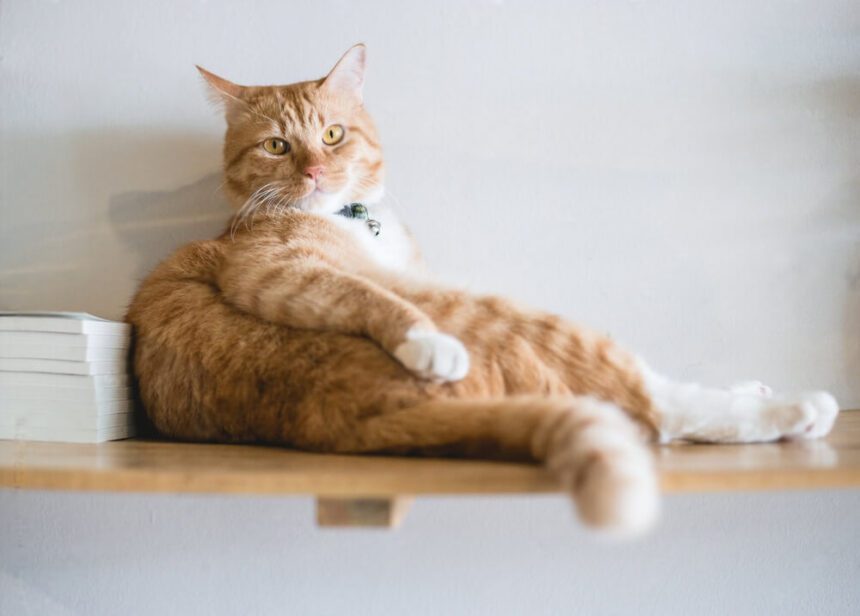If you’re here, it’s probably because you’ve noticed your feline buddy looking a little too lean. Maybe they’ve been turning their nose up at their usual kibble, or perhaps they’ve been unwell and lost some weight. No worries—we’ve got you covered! Today, we’re diving into the best homemade cat food for weight gain, designed specifically to help your kitty pack on some healthy pounds. Get ready for some tail-wagging recipes and tips to get your cat back to their purring best.
Why a Healthy Weight is Crucial for Cats
First off, let’s chat about why maintaining a healthy weight is so important for our feline friends. Cats that are underweight can face a slew of health issues. We’re talking a weakened immune system, potential organ problems, and a higher risk of injuries. Not to mention, they just won’t feel as peppy and playful as they should. Keeping your cat at a good weight helps them stay energetic, happy, and healthy.
Understanding Why Your Cat Might Be Losing Weight
Before we dive into the delicious recipes, it’s important to understand why your cat might be shedding those pounds. There are plenty of reasons, and not all of them are related to diet.
- Health Issues: Conditions like hyperthyroidism, diabetes, or gastrointestinal problems can cause weight loss. It’s always a good idea to get your vet involved if you notice significant changes in your cat’s weight.
- Dental Problems: Cats with sore teeth or gums might avoid eating because it’s painful.
- Stress and Anxiety: Changes in the home environment, new pets, or even a change in routine can stress your cat out, leading to a loss of appetite.
- Poor Nutrition: Sometimes, the food you’re giving your cat just doesn’t have enough of what they need. They might eat, but they’re not getting the right nutrients.
Alright, enough of the heavy stuff. Let’s get to the fun part—making some mouth-watering, weight-boosting meals for your kitty!
Best Homemade Cat Food For Weight Gain
Chicken and Rice Recipe
Ingredients:
- Cooked chicken, shredded
- Cooked brown rice
- Low sodium chicken broth
- Olive oil
- Fish oil (optional)
Instructions:
Mix the shredded chicken with the cooked brown rice. Drizzle some olive oil and a bit of fish oil if you’re feeling fancy. Slowly add the chicken broth until it reaches a good consistency. Serve it up and watch your cat enjoy every bite!
Salmon and Quinoa Recipe
Ingredients:
- Canned salmon (in water)
- Cooked quinoa
- Fresh parsley, chopped
- Olive oil
Instructions:
Drain the salmon and flake it with a fork. Toss in the cooked quinoa, chopped parsley, and a splash of olive oil. Mix everything thoroughly and serve in small portions. Your cat will love this gourmet treat!
Salmon and Sweet Potato Recipe
Ingredients:
- Cooked salmon, flaked
- Mashed sweet potato
- Plain yogurt
- Salmon oil (optional)
Instructions:
Combine the flaked salmon with the mashed sweet potato. Stir in the plain yogurt and add a touch of salmon oil for an extra omega-3 boost. Mix well and dish it out for your kitty.
Beef and Pumpkin Recipe
Ingredients:
- Cooked ground beef
- Unsweetened canned pumpkin
- Cooked carrots, mashed
- Coconut oil (optional)
Instructions:
Blend the cooked ground beef with the canned pumpkin and mashed carrots. Add a bit of coconut oil if you like. Stir until everything is evenly mixed. This hearty meal is sure to help your cat gain weight.
Tuna and Egg Recipe
Ingredients:
- Tuna (in water)
- Hard-boiled egg, chopped
- Plain yogurt
- Olive oil
Instructions:
Drain the tuna and flake it into a bowl. Add the chopped hard-boiled egg, plain yogurt, and olive oil. Mix until well combined and serve to your feline friend.
Additional Tips to Help Your Cat Gain Weight
Homemade food is a great start, but there are a few other things you can do to help your cat put on some weight.
Switch Up Their Food
Cats can be picky eaters, and sometimes they just get bored with their usual food. Try mixing things up with different recipes or adding new flavors to keep them interested. If they have food allergies, make sure to choose ingredients that won’t trigger any reactions.
Increase Water Intake
Hydration is key to overall health. Make sure your cat always has access to fresh water. If they’re not drinking enough, try adding a bit of water to their food. Wet food can also help keep them hydrated.
Check for Health Issues
If your cat is losing weight despite eating well, it’s time for a vet visit. Health problems like parasites, diabetes, or thyroid issues can cause weight loss. A vet can help diagnose and treat these conditions.
Boost Protein in Their Diet
Protein is essential for building muscle and maintaining a healthy weight. Make sure your cat’s diet is rich in high-quality proteins like chicken, fish, or beef. Avoid fillers like corn or soy that don’t offer much nutritional value.
Regular Feeding Schedule
Establishing a regular feeding schedule can help ensure your cat is getting enough food each day. Divide their daily portion into several small meals to keep their metabolism active and encourage steady weight gain.
Exercise and Play
Exercise might seem counterintuitive when you’re trying to help your cat gain weight, but it actually stimulates their appetite. Plus, it keeps them healthy and happy. Set aside some time each day for playtime with your cat.
Regular Vet Check-ups
Keep up with regular vet visits to monitor your cat’s health and weight. Your vet can provide valuable advice on diet and nutrition to help your cat reach a healthy weight.
The Advantages of Homemade Cat Food
Why go through the trouble of making your cat’s food at home? Here are a few reasons:
Cost-Effective
Making your own cat food can save you a pretty penny compared to buying high-end commercial cat foods. Plus, you can buy ingredients in bulk and use them for both your meals and your cat’s.
Nutrient Control
When you make your cat’s food, you have complete control over what goes into it. This means you can ensure they’re getting all the essential nutrients they need, without any unwanted fillers or preservatives.
Freshness and Quality
Homemade cat food is fresher than store-bought options. You can choose high-quality ingredients and prepare them in a way that preserves their nutritional value. Your cat will thank you for the extra care.
Customization
Every cat is unique, with their own likes, dislikes, and dietary needs. Homemade food allows you to tailor recipes specifically to your cat’s preferences and health requirements. Whether they need more protein, extra fat, or specific vitamins, you can adjust their diet accordingly.
Bonding Time
Preparing your cat’s food can also be a great way to bond with them. They’ll learn to associate meal prep time with delicious food, which can strengthen your relationship. Plus, it’s just plain fun to cook for your furry friend!
Best Commercial Cat Foods for Weight Gain
While homemade cat food is fantastic, sometimes you need the convenience of commercial cat food. Here’s what to look for:
High Protein Content
Make sure the first ingredient is a high-quality protein source like chicken, fish, or beef. This ensures your cat is getting the nutrients they need to build muscle and gain weight.
Healthy Fats
Look for foods that include healthy fats like fish oil or chicken fat. These provide extra calories and help keep your cat’s coat shiny and healthy.
Quality Carbohydrates
Whole grains like brown rice or oats can provide additional calories and energy. Avoid foods with a lot of fillers like corn or soy, which don’t offer much nutritional value.
Essential Vitamins and Minerals
Make sure the food contains essential vitamins and minerals, particularly omega-3 fatty acids, which are great for overall health and weight gain. A balanced diet is key to your cat’s well-being.
Frequently Asked Questions
Can I substitute ingredients in the recipes?
Absolutely! Feel free to swap out ingredients based on your cat’s preferences and dietary needs. Just make sure any substitutions are safe for cats.
How often should I feed my cat the homemade recipes?
It depends on your cat’s age, weight, and activity level. Generally, it’s best to divide their daily food intake into several small meals throughout the day.
Can these recipes be stored for later use?
Yes, you can store homemade cat food in airtight containers in the refrigerator for up to three days. For longer storage, consider freezing portions.
Should I transition my cat gradually to homemade food?
Yes, transition slowly to avoid digestive upset. Mix a small amount of the new food with their current diet, gradually increasing the amount over several days.
Can I use raw meat in the homemade cat food recipes?
It’s recommended to cook all meats thoroughly to avoid the risk of bacterial contamination. Some cat owners do feed raw, but it requires careful handling and a thorough understanding of nutrition.
Can these recipes help an overweight cat lose weight?
These recipes are specifically designed for weight gain. If your cat needs to lose weight, consult your vet for a tailored diet and exercise plan.
Final Thoughts
Feeding your cat homemade food is one of the best ways to ensure they get the nutrition they need to gain weight and stay healthy. It’s a rewarding experience that can strengthen your bond with your cat and give you peace of mind knowing exactly what they’re eating. Always consult with a veterinarian before making significant changes to your cat’s diet and keep an eye on their progress.
The journey to a healthier, happier cat starts with the right food. Try these recipes, pay attention to their preferences and needs, and you’ll see your feline friend thriving in no time. Happy cooking, and here’s to your cat’s health!



